Departmental news
The University of Warwick supports RIFT Technology with a greener cost-effective electric motor
A cheaper and more environmentally friendly electric motor for electric vehicles is a step closer to market with the support of WMG at the University of Warwick.
WMG has provided valuable knowledge and expertise in developing a UK focused, cost-effective production and supply chain for RIFT (Reduced  Induction Field Torque) Technology’s development of RIFT-10; a design for electric motor drives that reduces copper and magnet weight reduction by around 50% and lower cost by 75%.
Induction Field Torque) Technology’s development of RIFT-10; a design for electric motor drives that reduces copper and magnet weight reduction by around 50% and lower cost by 75%.
The aim of the project was to help RIFT Technology; an R&D company bringing a product to market for the first time, advance RIFT-10 to a higher manufacturing readiness level (MRL 7), to get the motor closer to production, by rooting the supply chain in the UK, rather than abroad (given the disruption to supply caused by the pandemic) and supporting production of trial units.
WMG, is committed to delivering UK economic impact and achieving net-zero by supporting industry in accelerating new concepts to commercial reality. This supports the University of Warwick’s approach to sustainability - the Way to Sustainable – which focuses on the real-life implications of creating a sustainable future and the practical challenges of getting there - prioritising research expertise, sustainability in the curriculum, and developing solutions for the benefit of industry and society.
The team of experts at the University has facilitated the RIFT-10 project to deliver on creating revenue, jobs, CO2 reduction, and supply chain growth in the UK.
RIFT Technology has developed the RIFT 10-30 kW motor (RIFT-10) by taking an exciting innovation from their sister business (RIFT Actuators) and working with APC and the Niche Vehicle Network to get the motor to working prototype stage (installed on a G-Whiz). The novel electric motor configuration is proven to generate 10-30kW of power, torque from 0-400Nm and up to 10,000RPM as demonstrated with a prototype vehicle.
The RIFT 10 motor demonstrated unique advantages over conventional EV motors:
Environmental benefits of the project:
· The low sales cost and attractive features of RIFT-10 enable greater/earlier market adoption of EUV’s, resulting in a reduction of CO2 production over ICE vehicles.
· A RIFT-10 weight saving and efficiency over competing EV motor designs increase vehicle range, resulting in less energy usage over alternatives.
· With RIFT-10, equivalent power output is achieved using fewer raw materials (i.e., 85% reduced copper weight and ~85% reduced magnet volume), resulting in less earth material usage as well as fewer material costs.
· Less materials usage results in an estimated 75% reduction in CO2 produced during manufacture. Planned production efficiencies also lead to further CO2 reductions. An estimated 612,000 Tonnes of CO2 would be saved by year 5.
· Development of an EV motors supply chain in the UK for a UK and EU market reduces international shipping of components thus reduces related CO2 production.
Social benefits of the project:
· RIFT-10 creates/safe-guards 50+ much needed and good-quality manufacturing, sales, administration and R&D jobs in the Malvern area with an estimated X14 more UK jobs across the supply chain (over 5-years).
· Growth of RIFT-10 addresses the government’s priority area of ‘Smart Cities’ by allowing smart monitoring of vehicle fleets efficiency performance, usage and other data points. The use of the Internet of Things and resulting analysis can only be as strong as the data input. Traditional alternatives offer no smart functionality.
James Black, WMG Innovation Manager at the University of Warwick said, “The Covid-19 pandemic has been particularly difficult for SMEs and R&D-focused organisations that have previously relied on face-to-face networking events to find new partners, investors, and customers.
“WMG’s network means we’re in a great position to connect UK companies together to help them accelerate their product to the market, and we’re delighted that RIFT Technology has benefited from our extensive background for practical supply chain solutions that have delivered economic and societal value to the project.”
James O’Donnell, Technical Manager from RIFT Technology said, “As a research and development company bringing a product to market for the first time, RIFT Technology needed to bridge the gap between prototype and small-scale production. We had to answer difficult questions such as what to make and what to buy, high level questions such as how to develop a supply chain strategy and practical questions such as how best to select suppliers.
“With a unique blend of academic expertise and industrial experience from the University of Warwick, WMG’s Supply Chain and Operations Group were able to support us in our journey.”
The project took place during the pandemic, meaning several online workshops were carried out targeting topics such as strategic management, supplier selection and decision-making, and end-of-life strategies.
For further stories, click here.
ENDS
4 April 2022
WMG supports innovation in polymer science for a sustainable future
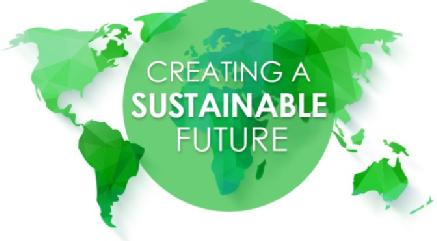 WMG researchers based in the International Institute for Nanocomposites Manufacturing (IINM) have been developing a range of polymer-based solutions for application across several critical sectors, including renewable energy, sustainable transport, and replacement of single use plastics, helping to contribute to a sustainable future.
WMG researchers based in the International Institute for Nanocomposites Manufacturing (IINM) have been developing a range of polymer-based solutions for application across several critical sectors, including renewable energy, sustainable transport, and replacement of single use plastics, helping to contribute to a sustainable future.
Here’s a summary of the key projects.
Renewable Energy: Graphene Enabled All Polymer Solar Thermal Cell
Professor Tony McNally working with Dr Sandeep Kumar in partnership with Senergy Innovations Ltd, has submitted patent applications to the UK Intellectual Property Office that describe 2D material filled polymers for use in Solar Thermal Cells. Critically, the materials developed have very high ‘in-plane’ and ‘through-plane’ thermal conductivity and can be processed using conventional polymer processing methods.
The project was supported by BEIS £11M Energy Entrepreneurs Fund. This scheme is for the development and demonstration of state-of-the art technologies, products, and processes in the areas of energy efficiency, power generation, and heat and electricity storage.
Christine Boyle, CEO of Senergy Innovations Ltd, commented: " Working with the IINM and WMG has allowed Senergy to push the boundaries with innovative technology that has the potential to bring a lot of societal good in sustainability and job creation, also enabling future innovation within the business. Dramatic cost reductions of more than 40% are possible when solar thermal systems are re-engineered with high performance polymers. In 2022 we will work alongside our early customers to showcase how the Senergy solar panels can now reduce the cost of delivering solar hot water and heating to a price point that will finally compete with gas and oil."
Professor McNally said: “We are really excited by this exploitation of our research which has far reaching applications in numerous other sectors, including thermal management in electronic devices and electric vehicles.”
The design for manufacture aspects of the development of the solar thermal cell were supported by the High-Volume Manufacturing (HVM) Catapult and the WMG SME Team.
Sustainable Transport: New Chemistry Enables Conventional Sulphur-vulcanised Tyre Tread Rubbers to Self-heal
Dr Chaoying Wan working with Dr Alan Wemyss in collaboration with Bridgestone EMIA have recently filed a patent application which describes the design and inclusion of dynamic bonds in vulcanised rubbers. This allows the conventional covalent-crosslinked rubber networks to be adaptive to external mechanical damage, self-healable and be reprocessed. The dynamic crosslinking networks also promise excellent mechanical properties and fatigue-resistance that are comparable to conventional rubber vulcanizates.
Dr Raffaele di Ronza, R&D Open Innovation Expert at Bridgestone EMIA commented: “At Bridgestone we have a high focus on sustainability and material technologies to extend tyre life, a key element of our strategy in this field. Through this collaboration with WMG we could explore new solutions that support the realisation of our long-terms targets.”
Dr Chaoying Wan said: “We are delighted with the progress that has been made in improving the sustainability of vulcanised rubber products during our collaboration with Bridgestone. We are now able to further our understanding of self-healing vulcanised rubbers thanks also to the support from WMG and the High Value Manufacturing Catapult which will take us further towards in-depth understanding of elastomer science and new technology development for sustainable elastomer manufacturing.”
Replacement of single-use plastics: Sustainable Bioplastics for Food Packaging Applications
Dr Chaoying Wan and Professor McNally in partnership with Pujing Chemical Industry Co., Ltd., have developed fully biodegradable plastics with the gas barrier and mechanical properties required for food packaging applications. Poly(glycolic acid) or PGA has great potential as a substitute for current single-use plastics used in food packaging applications but with a lower carbon footprint. By blending and promoting interfacial interactions between PGA and other bioplastics, such as PBAT, the team have developed sustainable plastics for food packaging.
In collaboration with Sherkin Technologies UK Ltd., the team have been able to enhance the barrier properties of PGA/PBAT further by crosslinking the outer surface of the films using low energy electron beam treatment.
Dr Bowen Tan, Research Manager (UK), Pujing Chemical Industry Co., Ltd. Stated: “We collaborated with WMG on a research project on the blending of biodegradable plastics for flexible packaging applications. They have provided specialist and a wealth of expertise on plastic processing and modification. WMG is equipped with a wide range of polymer processing and testing equipment which enable our research to be carried out from small to manufacturing scales. The outcome of the project was beyond our expectation.”
Mr Donal O’Sullivan, Managing Director, Sherkin Technologies UK Ltd. Commented: “Plastic packaging plays an important role in the reduction of food waste. Biodegradable food packaging usage has great potential to meet local and global targets for the use of sustainable packaging. The recent work undertaken by the IINM, and their industrial partners is an important step in demonstrating the potential for Low Energy Electron Beam as a platform technology which can be deployed to improve and optimise barrier properties in a new generation of biodegradable films.”
Read more about WMG’s Nanocomposites research here: Nanocomposites (warwick.ac.uk)
Clean Transport Accelerator launched by NatWest and University of Warwick to help SMEs fast-track their innovations
- NatWest and WMG, a department at the University of Warwick, are inviting businesses that are creating the next generation of clean green transport to apply to their new accelerator
- Businesses will receive support to fast-track their innovations, including easy access to clean transport experts and equipment, exclusive 1:1 coaching sessions, and access to growth funding
- The Clean Transport Accelerator is a fully-funded programme and will help the UK be a green leader in carbon-neutral transport for future mobility, helping businesses bring their innovations to the market quicker
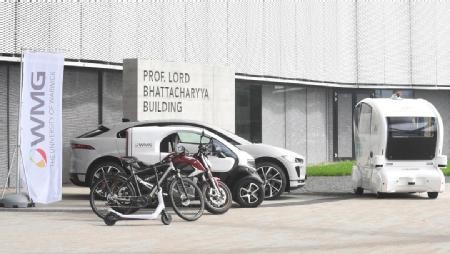 With transport being the largest carbon emitting sector in the UK, a partnership between NatWest and WMG at the University of Warwick has led to the launch of the Clean Transport Accelerator. It will support businesses which are part of the mobility sector to develop products and services that will play their part in achieving the UK’s net-zero goals.
With transport being the largest carbon emitting sector in the UK, a partnership between NatWest and WMG at the University of Warwick has led to the launch of the Clean Transport Accelerator. It will support businesses which are part of the mobility sector to develop products and services that will play their part in achieving the UK’s net-zero goals.
The first cohort of the programme will help 10-15 businesses through education, events, networking and coaching. They will also have access to experts and equipment to help them accelerate their innovations to the market and demonstrate an impact in the pursuit of net zero goals.
Applicants can be from anywhere across the UK and cover a broad range of businesses, whether they are based within supply chains, are fuel providers, want to develop new means of transport, or be focused on specific transport such as light rail, cargo delivery or scooters.
The programme will be delivered jointly by NatWest and WMG, University of Warwick. NatWest will provide an enterprise acceleration manager with 1:1 coaching, access to their accelerator growth events and access to work space, as well as learning hubs at the University of Warwick and Birmingham.
The University of Warwick will provide access to clean energy, manufacturing, automotive and connected experts at WMG and their HVMC (High Value Manufacturing Catapult), as well as the tools to validate and test any equipment designed by the businesses and access to co-working spaces on Campus.
NatWest supported over 55,000 entrepreneurs in 2021 and has 13 accelerator hubs across the UK. Businesses with high growth potential benefit from a range of support through the accelerators. This includes coaching, community, access to a wide network and thought leadership content. NatWest accelerators are keen to attract more female and BAME led businesses as well as companies outside London and the South East. Any business keen to take its next step for growth should consider applying to the NatWest accelerator scheme.
The Clean Transport Accelerator news follows the recent launch of NatWest’s green loans for SMEs and green asset finance through Lombard. Companies can access funds with no arrangement fee to help them transition to more sustainable working practices. The bank has pledged to lend £100 billion by 2025 to businesses looking to invest in being greener. NatWest’s Springboard to Sustainability report, published in October 2021, found that half the UK’s carbon reduction ambition can be delivered by the SME sector and the Clean Transport Accelerator is the bank’s latest offering to help UK SMEs pursue this goal.
Professor David Greenwood, CEO of the High Value Manufacturing Catapult (HVMC) at WMG, University of Warwick comments:
“The drive to net zero has opened up new and exciting opportunities for innovation in the transport sector. Together with NatWest, we’d like to ensure that the UK delivers economic benefits as well as environmental benefits as we meet this critical objective. This programme is aimed to support small and innovative companies as they build and scale up their products, services and business models.”
Richard Hill, Head of Automotive and Manufacturing at NatWest, said:
“NatWest has set out a clear ambition to play a leading role in helping to address the climate challenge, and so we are thrilled to be working with the University of Warwick to offer clean transport businesses a fast-track to delivering on the UK’s green goals.
“Packed with experts, access to equipment, networking opportunities and funding advice, the Clean Transport Accelerator is a must for any business keen to scale up their next step. I look forward to seeing the innovative and exciting businesses that we support.”
Businesses can apply for the Clean Transport Accelerator here: Registration Portal
Where it says ‘Voucher Code’ please enter ‘CleanTransport01/2022’
The deadline for applications is the 11th April 2022.
ENDS
22 FEBRUARY 2022
NOTES TO EDITORS
High-res image available at:
https://warwick.ac.uk/services/communications/medialibrary/images/february_2022/electric_vehicles_outside_wmg_.jpg
Caption: Electric Vehicles outside WMG, University of Warwick
Credit: WMG, University of Warwick
For more information and to apply to the Clean Transport Accelerator visit here
For more information on NatWest’s nationwide accelerators visit here
For more information on NatWest’s green loans visit here
For further information please contact:
Alice Scott
Media Relations Manager – Science
University of Warwick
Tel: +44 (0) 7920 531 221
E-mail: alice.j.scott@warwick.ac.uk
Laura Blumenthal
Media Relations Manager – NatWest
Tel: 07947974464
E-mail: laura.blumenthal@natwest.com
About NatWest Group
NatWest Group is a relationship bank for a digital world. We champion potential; breaking down barriers and building financial confidence so the 19 million people, families and businesses we serve in communities throughout the UK and Ireland can rebuild and thrive. If our customers succeed, so will we.
About WMG, University of Warwick
WMG is a world leading research and education group, transforming organisations and driving innovation through a unique combination of collaborative research and development, and pioneering education programmes.
As an international role model for successful partnerships between academia and the private and public sectors, WMG develops advancements nationally and globally, in applied science, technology and engineering, to deliver real impact to economic growth, society and the environment.
WMG’s education programmes focus on lifelong learning of the brightest talent, from the WMG Academies for Young Engineers, degree apprenticeships, undergraduate and postgraduate, through to professional programmes.
An academic department of the University of Warwick, and a centre for the HVM Catapult, WMG was founded by the late Professor Lord Kumar Bhattacharyya in 1980 to help reinvigorate UK manufacturing and improve competitiveness through innovation and skills development.
Latest bursary winners announced under Lord Bhattacharyya Engineering Education Programme
The Royal Academy of Engineering has announced the second cohort of West Midlands students to receive the Lord Bhattacharyya Higher Education bursaries, which aim to widen participation in engineering.
Nine bursaries, each worth £5000 a year for three years, have been awarded to students from underrepresented groups across the region who are progressing from A Levels or technical engineering courses to degree-level engineering courses in the 2021/22 academic year.
These prestigious awards form part of the wider Lord Bhattacharyya Engineering Education Programme, a five-year programme funded by the UK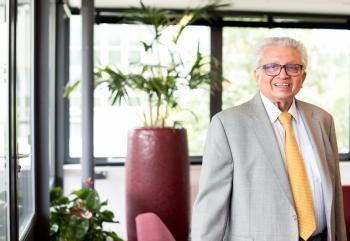 Government Department for Business, Energy and Industrial strategy (BEIS) as a tribute to the late Professor Lord Kumar Bhattacharyya Kt CBE FREng FRS, a renowned engineer, academic, educator and government advisor who established WMG at the University of Warwick in 1980.
Government Department for Business, Energy and Industrial strategy (BEIS) as a tribute to the late Professor Lord Kumar Bhattacharyya Kt CBE FREng FRS, a renowned engineer, academic, educator and government advisor who established WMG at the University of Warwick in 1980.
The programme, led by the Royal Academy of Engineering in close partnership with WMG, aims to promote engineering to young people in the West Midlands from low-income backgrounds and those who are underrepresented in engineering. The comprehensive support package provided to the programme’s network of secondary schools and FE colleges aims to upskill teachers and inspire young people to take up engineering, before supporting their progression into further and higher education and into engineering careers.
The nine awardees are:
- Dawud Ahmed, studying Electronic and Electrical Engineering at Birmingham University
- Mohammed Shahid Akther, studying Aerospace Technology and Coventry University
- Farid Alhaji, studying Automotive Engineering at Coventry University
- Jamila Houmadi, studying Electronic Engineering with Foundation Year at Birmingham City University
- Iqra Khan studying Civil Engineering at Coventry University
- Raees Kiani, studying Civil Engineering at Coventry University
- Afras Malik, studying Aerospace Systems Engineering at Coventry University
- Bianca Miller, studying Computer Systems Engineering at the University of Essex
- James Wilkes, studying Aircraft Maintenance Engineering at Solihull College & University Centre
Dr Rhys Morgan, Director of Engineering and Education at the Royal Academy of Engineering, says: “It’s so great to see these talented young people in the West Midlands being supported to become future engineers and technicians. The Academy is proud to help continue the engineering heritage of this region and it is vital that we work as a profession to attract a diverse workforce who will in turn bring added benefits of creativity and productivity to local businesses.”
Professor Robin Clark, Dean of WMG, University of Warwick adds: “I would like to congratulate the second cohort of recipients of a Lord Bhattacharyya Higher Education bursary—Professor Lord Bhattacharyya was a passionate advocate of inspiring young people to follow a career in STEM. I’m absolutely delighted to see the enthusiasm of the students and the diverse range of engineering subjects that the students are passionate about”.
Applications for the third round of Lord Bhattacharyya Higher Education Bursaries will open in March 2022, for students enrolling at university in September 2022.
More information about the nine awardees can be found here.
Media enquiries to:
Pippa Cox at the Royal Academy of Engineering Tel. +44 207 766 0745; email: Pippa.Cox@raeng.org.uk
or
Lisa Harding at WMG Lisa.Harding@warwick.ac.uk Tel +44 7824 540845
Autonomous vehicle safety standard concept enables tests needed to be road ready
- Operation Design Domain (ODD) is a fundamental to Connected autonomous Vehicle (CAV) safety, as it describes specific operating conditions in which the CAV system can operate safely, including environmental parameters such as weather an infrastructure
- Defining an ODD in a standard way has now been made official thanks to a new international standard concept created the German standards body ASAM and led by WMG at the University of Warwick, which defines the language used to define an ODD
- The new ASAM OpenODD language concept clears the barrier between CAV manufacturers and authorities, so they can find out if the vehicle is allowed to drive within the authority’s area or not and vice versa
An Operational Design Domain (ODD) is fundamental to Connected Autonomous Vehicle safety, however defining an ODD hasn’t been done before, until now, thanks to the work undertaken by German standardisation body ASAM and led researchers from WMG, University of Warwick.
An Operational Design Domain Definition (ODD) describes specific operating conditions in which the automated driving system is designed to properly operate. It specifies what operating parameters the CAV must be able to manage, for example, weather conditions, infrastructure, location, time of day and everything else that can have an impact on the driving situation. The ODD is thus an important part of the safety concept of a vehicle and must be valid throughout its entire service life for a particular configuration of the CAV.
ASAM, a German standardisation body have been working with WMG, University of Warwick and other international experts to publish a new international standard concept, to develop a language for defining ODDs. They have successfully created a concept for machine-interpretable format to represent the ODD specification. The concept paper can be downloaded free of charge. Additional use cases or requirements can still be proposed before the standard development starts.
Th new format concept enables governments and the automotive industry to access ODD descriptions that are exchangeable, comparable, and processable.
An application example of the effective use of ASAM OpenODD is as follows: A city describes the ODD for its downtown area in the ASAM OpenODD format and makes it available to automotive manufacturers. The manufacturers can then use these descriptions to easily match their vehicles with the defined ODD to find out if their vehicles are allowed to drive in the respective downtown area. They can also use the descriptions to map their scenario test catalogue to the requirements of the ODD. The registration authorities have the benefit of defining ODDs that they can use to check autonomous vehicles. They can also be used to support the development of the ADAS and AD systems, as the use of the ODD can define the testcases that are necessary to validate the vehicle. There can be obvious limitations, for example, if the vehicle is not capable of speeds above 50 km/h highway tests are not necessary. This application of an ODD helps to focus the limited validation resources on the really needed scenarios.
Dr Siddartha Khastgir, from WMG, University of Warwick and project lead for ASAM Open ODD Concept project comments: “Operational Design Domain definition is key to creating a safe automated vehicle. However, how is an ODD defined hasn’t been officially deemed, until now, as the ASAM OpenODD concept has provided the language to define an ODD.
definition is key to creating a safe automated vehicle. However, how is an ODD defined hasn’t been officially deemed, until now, as the ASAM OpenODD concept has provided the language to define an ODD.
“This means that going forward CAV manufacturers can define and exchange ODD definitions and authorities can have a common understanding of the ODD definition. I am grateful to all international experts who have contributed to this work. Achieving safety of automated driving needs to be a collaborative effort and ASAM OpenODD is an example of this.”
Peter Voss, Managing Director, ASAM E.V. comments:
"ASAM OpenODD will be a standard that will not only contribute to the safety of automated vehicles, but more importantly, will help to implement automated driving functions faster,".
In addition to the format and syntax, the concept for ASAM OpenODD also takes into account attributes (leveraging ISO 34503), metrics and the representation of uncertainties. The future standard will be compatible with all other standards of the ASAM OpenX family, particularly with OpenDRIVE, OpenSCENARIO and OpenXOntology.
ENDS
1 FEBRUARY 2022
NOTES TO EDITORS
High-res images available at:
https://warwick.ac.uk/services/communications/medialibrary/images/april2020/sid_39.jpg
Caption: Dr Siddartha Khastgir, from WMG, University of Warwick
Credit: WMG, University of Warwick
ASAM OpenODD Concept: https://www.asam.net/standards/detail/openodd/
Recording of webinar: https://www.asam.net/conferences-events/detail/webinar-asam-openodd-concept/
Further resources on understanding ODDs:
What is an ODD (by Nicco Hagedorn, ASAM e.V.): https://www.youtube.com/watch?v=u4F5OZlRlaQ
Curious case blog (by Siddartha Khastgir, WMG): https://bit.ly/CuriousCaseODD
For further information please contact:
Alice Scott
Media Relations Manager – Science
University of Warwick
Tel: +44 (0) 7920 531 221
E-mail: alice.j.scott@warwick.ac.uk
New Loqski glass fibre ski lock to keep your skis safe this season
- With winter being the ski season many skiers will be off on holiday, possibly taking their own expensive skis
- When leaving your skis for a break from the slopes they’re at risk of being taken intentionally or unintentionally from the racks, however Loqski have come up with a solution made and manufactured in the UK
- Loqski is a pocketable device locking skis and poles together, WMG at the University of Warwick have helped them manufacture the locks affordably and sustainably
- Loqski’s new and improved lock is available to buy now
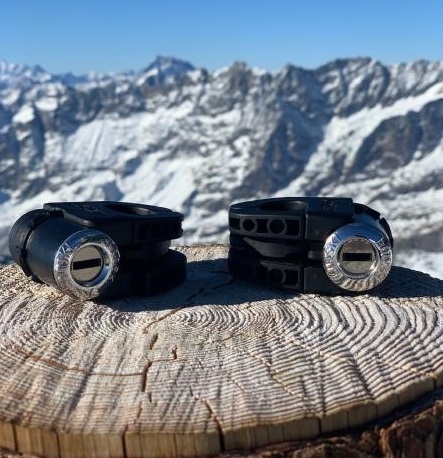 On a ski resort, after spending time on the slopes skiers will often head inside for a break in a restaurant or bar leaving their skis with everyone else’s on a rack outside. For this reason avid skier James Pittard decided not to buy himself expensive skis for fear that they would go missing, whether intentionally or unintentionally.
On a ski resort, after spending time on the slopes skiers will often head inside for a break in a restaurant or bar leaving their skis with everyone else’s on a rack outside. For this reason avid skier James Pittard decided not to buy himself expensive skis for fear that they would go missing, whether intentionally or unintentionally.
This led him to think about an easy to use, pocketable device that could lock both skis and poles simply together. Taking his idea to a design agency, the Loqski ski lock, with its high security combination lock that can be operated even with ski gloves on, was launched in a zinc-based material.
However, as sales were taking off the zinc-based material used couldn’t be manufactured quick enough to keep up with demand, until they discovered GV-5H, a glass fibre reinforced thermoplastic material that is often used in the automotive industry as it’s incredibly tough yet lightweight.
James then approached WMG, at the University of Warwick for help on a number of aspects of this looking into Grivory GV-5H, including testing the material, assessing the strength of the redesigned components in the assembly and giving advice on ways in which costs can be reduced during the manufacturing process.
Whilst it’s not possible to 3D print in Grivory GV-5H, researchers from WMG printed the prototype parts in strong engineering plastic with a carbon fibre infill using Markforged Mark 2 FDM printer that would reflect the strength of this material. These prints proved the suitability of Grivory GV-5H for this product.
They also assessed whether a redesigned barrel design component would fit into the assembly as changing just this one part would help reduce costs. They produced many 3D prints of the barrel component; these parts were then thoroughly tested not only for form and function but also to assess that it would fit with the other components in this existing assembly.
Being able to fully test the fitment of the new barrel design enabled Loqski to compare the cost of having to tool a completely redesigned product, which would be an excess of £50,000, or spending £7,000 for tooling just this barrel component and using it in the existing assembly.
“Loqski are now in a position where they are able to streamline manufacture. With less components to assemble, the assembly time has sped up and so manufacturing costs have been reduced. Loqski always had an ambition of keeping manufacture in the UK and by reducing manufacturing costs, we are pleased that we could assist them in doing that. We are thrilled to see them take their new and improved lock to the market, and hope that skiers this season will invest to keep their skis safe.” says Neil Jeffree, Innovation Manager at WMG, University of Warwick.
By reducing manufacturing costs Loqski is now able to produce a more cost-effective end product in higher volumes, which will put the company in better stead to work with distributors and have the product stocked by retailers worldwide. It has also led James to consider expanding the product’s reach even further.
“One of the things we’d now like to push is getting the new product into the ski rental market, where it can be hired out when skiers rent their skis. This is something we would never have considered with the zinc-based product as it was just too expensive.” says James Pittard, founder of Loqski.
ENDS
18 JANUARY 2022
NOTES TO EDITORS
High-res images available at:
https://warwick.ac.uk/services/communications/medialibrary/images/january_2022/img_2601.jpg
Caption: The Loqski Lock
Credit: Loqski
https://warwick.ac.uk/services/communications/medialibrary/images/january_2022/img_2612.jpg
Caption: The Loqski Lock
Credit: Loqski
For further information please contact:
Alice Scott
Media Relations Manager – Science
University of Warwick
Tel: +44 (0) 7920 531 221
E-mail: alice.j.scott@warwick.ac.uk
WMG academic joins Department for Transport’s Science Advisory Council
· Dr Siddartha Khastgir, from WMG at the University of Warwick has been appointed to be on the Department for Transport’s Science Advisory Council (SAC).
· The DfT Science Advisory Council (SAC) provides independent strategic advice and challenge to the Department on key areas of science, social science engineering and technology.
· Dr Khastgir will focus on taking a systems thinking approach across various modes of transport (land, air and marine) to ensure their safe enrolment and public acceptance in the UK
Dr Siddartha Khastgir from WMG, University of Warwick, has been appointed to be on the DfT’s Science Advisory Council, where he will advise on a wide range of science and engineering issues, such as enrolment of Autonomous Vehicles.
advise on a wide range of science and engineering issues, such as enrolment of Autonomous Vehicles.
Today, Friday 14th January 2022, the Department for Transport have announced five new members and a new Chair joining their Science Advisory Council, including Dr Siddartha Khastgir from WMG, University of Warwick.
The DfT’s Science Advisory Council provide the DfT with advice and challenge on key areas of science, engineering and technology, supporting the role for the DfT Chief Scientific Adviser Professor Sarah Sharples, by ensuring departmental activity is informed by the best external expertise and evidence, identifying relevant emerging issues and trends and assuring DfT’s use of science and technology.
Dr Siddartha Khastgir is Head of Verification and Validation of Connected and Autonomous Vehicles at WMG, University of Warwick. In 2019 he was awarded a UKRI Future Leader Fellowship focusing on Autonomous Vehicle safety standards. Leveraging his research on Autonomous Vehicles safety, he will focus on taking a cross-domain approach to safety in land, marine and air.
With his new appointment on the council Dr Khastgir will help advise DfT on the technological and societal challenges surrounding introduction of new technologies, and how they can be enrolled in UK safely and efficiently. He comments:
“To be a part of the Department for Transport’s Science Advisory Council is incredibly exciting, I’m looking forward to working with other experts in the field to provide advice to help the DfT to inform future policy, with its foundations in strong research outputs. Not only do we need to create safe systems, we need to communicate with the public to ensure public acceptance.”
Margot James, Executive Chair at WMG, University of Warwick adds “I am delighted to hear that Siddartha has been appointed to the Department for Transport Science Advisory Council, a reflection of his world-leading research into safety for connected and autonomous vehicles. I will be watching with interest to see how the DfT moves this emerging technology forward, and look forward to Siddartha being a key part of this.”
UKRI Future Leaders Fellowships Director Stephen Meader said:
“The world leading research undertaken by Dr Khastgir and his team is vital for the development of safe autonomous vehicles that can cut both congestion and carbon emissions.
“Dr Khasgir’s appointment to the Department for Transport’s Science Advisory Council (SAC) demonstrates both the importance of this work to the future of mobility in the UK and the value the Future Leaders Fellowships scheme brings in enabling his research.”
Other new appointees joining six existing members include:
· Dr Siddartha Khastgir, Head of Verification and Validation of Connected and Autonomous Vehicles, University of Warwick
· (SAC Chair) Professor Alastair Lewis, Professor of Atmospheric Chemistry, University of York
· James Gaade, Head of Programme Management, The Faraday Institution
· Professor William Powrie, Professor of Geotechnical Engineering, University of Southampton
· Dr Emma Taylor, Head of Digital Safety, RazorSecure Ltd.
· Professor Patricia Thornley, Director of the Energy & Bioproducts Research Institute, Aston University
Department for Transport Chief Scientific Adviser, Sarah Sharples, said: “I’m pleased to welcome the new members appointed to the Science Advisory Council. They bring significant additional expertise in key areas that will support DfT’s effective use of science and engineering. I look forward to working with them.”
ENDS
14TH JANUARY 2022
NOTES TO EDITORS
High-res images available at: https://warwick.ac.uk/services/communications/medialibrary/images/april2020/sid_39.jpg
Caption: Dr Siddartha Khastgir, from WMG, University of Warwick
Credit: WMG, University of Warwick
For further information please contact:
Alice Scott
Media Relations Manager – Science
University of Warwick
Tel: +44 (0) 7920 531 221
E-mail: alice.j.scott@warwick.ac.uk
WMG Professor announced as new Programme Director for Defence and Security at The Alan Turing Institute
 Tim Watson, WMG’s Professor of Cyber Security and the Director of the WMG Cyber Security Centre, has been named as the new Programme Director for Defence and Security at The Alan Turing Institute.
Tim Watson, WMG’s Professor of Cyber Security and the Director of the WMG Cyber Security Centre, has been named as the new Programme Director for Defence and Security at The Alan Turing Institute.
Professor Watson will lead a portfolio of work applying data science and artificial intelligence to national security, cyber security, and defence challenges, working closely with national and international partners.
He will take responsibility for the refresh and delivery of the strategy for the Institute’s Defence and Security Programme. His work will be vital in the development of a vibrant and high impact research and training programme.
Professor Watson is seconded to the Institute from his role at WMG where he has more than thirty years’ experience working with government, industry and in academia, and is an advisor to various parts of the UK Government and to several professional and standards bodies.
Professor Watson said, “I am delighted and honoured to be joining The Alan Turing Institute as its new Programme Director for Defence and Security. The role of data science and AI is more central than ever to our collective safety and security.
“It is vital that the world-class talents brought together by the Turing deliver the tools, insights and advances we need for a safer, more prosperous world. Together with the rest of the team at the Turing and with the wider research community, I look forward to contributing to this important and exciting work.”
WMG appoints new Honorary Associate Professor
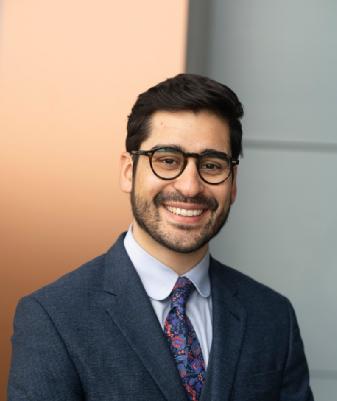 Dr Ahmad Mohsseni, Chief Technology Officer at UKBIC, has been made an Honorary Associate Professor at WMG.
Dr Ahmad Mohsseni, Chief Technology Officer at UKBIC, has been made an Honorary Associate Professor at WMG.
Dr Ahmad Mohsseni joined UKBIC in April 2019, where he sits on the executive committee - the team responsible for delivering and operating the Centre. Dr Mohsseni is responsible for Engineering and Quality specifically.
Prior to this Dr Mohsseni was team leader, project manager and research associate at RWTH Aachen University, and a management consultant at McKinsey and Company. He holds Bachelor and two Master of Science degrees from RWTH Aachen University in Economics, Manufacturing Engineering, and Mechanical Engineering, as well as a PhD in engineering.
Professor David Greenwood, Director for industrial Engagement at WMG comments: “I am delighted for us to deepen the research relationship between UKBIC and WMG through the appointment of Dr Ahmad Mohsseni as Honorary Associate Professor. Ahmad, as CTO of UKBIC has worked closely with the research team at WMG in the fields of battery electrochemistry and battery manufacturing, and his scientific and technical knowledge will contribute greatly to our joint research agenda in the future.”
Jeff Pratt, UKBIC’s Managing Director, said: “I’m delighted with Ahmad’s appointment as Honorary Associate Professor at WMG, at the University of Warwick. This appointment, alongside his role as Chief Technology Officer at UKBIC, recognises Ahmad’s valuable contribution to the development of UKBIC, a facility created to support UK industry with development of battery technologies for future electrification. He will be a great asset to the University.”
In his role as Honorary Associate Professor, Dr Mohsseni will share his expertise by giving seminars and contributing to joint research with WMG staff.
WMG research highlighted in key industry report
Project data analysis research from WMG’s Project Praxis Group was featured in the CBI’s education and skills annual report.
The report entitled ‘Programmes with purpose,’ is an outcomes-led approach to government’s major projects from the perspective of the projects themselves. It is based on delivering sustainable, efficient, innovative, and outcomes-orientated programmes, that put people, communities, value-for-money, and our climate at the foundations of everything done by the various parties involved in major projects.
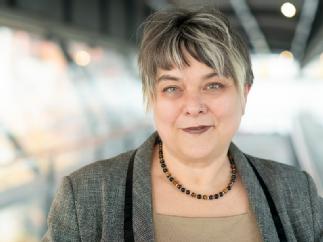 WMG’s Professor of Complex Programme Management, Naomi Brookes, explains: “The use of past and current project data to enable effective decisions on project delivery - has the potential to deliver up to £23bn in annual savings across UK infrastructure projects.”
WMG’s Professor of Complex Programme Management, Naomi Brookes, explains: “The use of past and current project data to enable effective decisions on project delivery - has the potential to deliver up to £23bn in annual savings across UK infrastructure projects.”
Read ‘Programmes with purpose’ in full here: 12703_major-projects_programme-perfection-report_ie.pdf (cbi.org.uk)
You can find out more about WMG’s Project Praxis Group here: Project Praxis (warwick.ac.uk)
